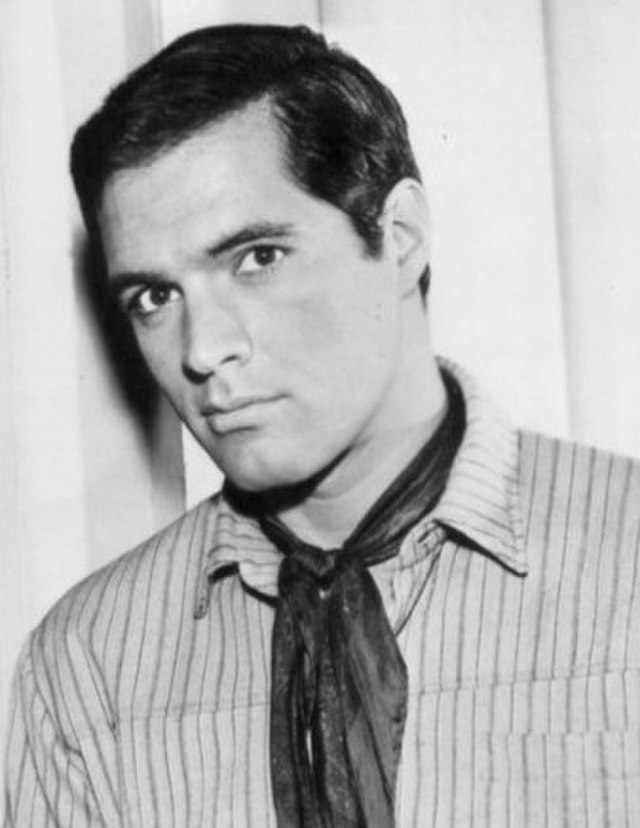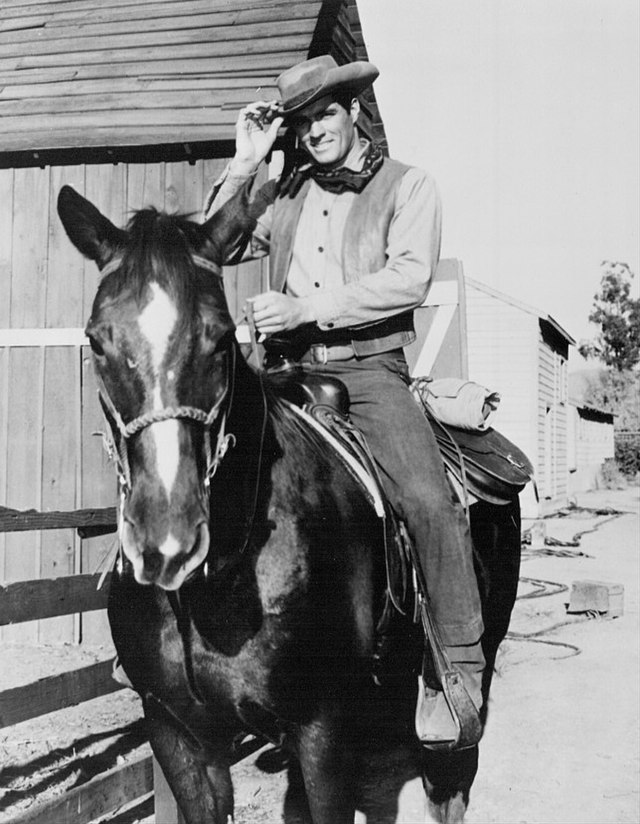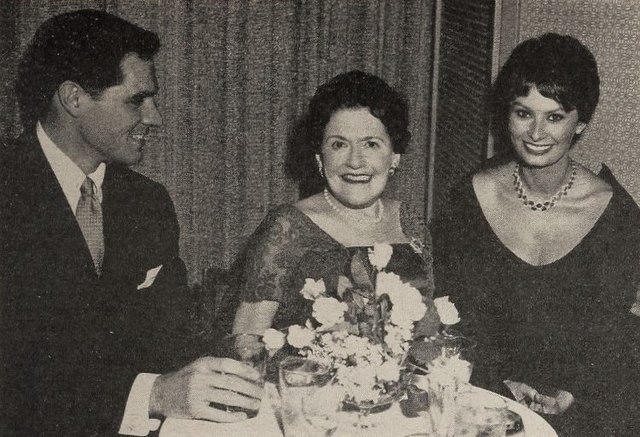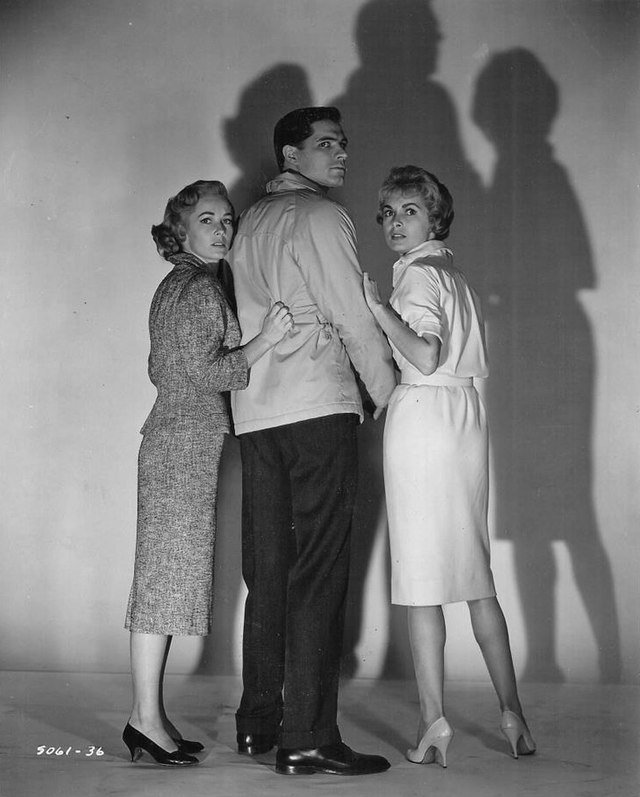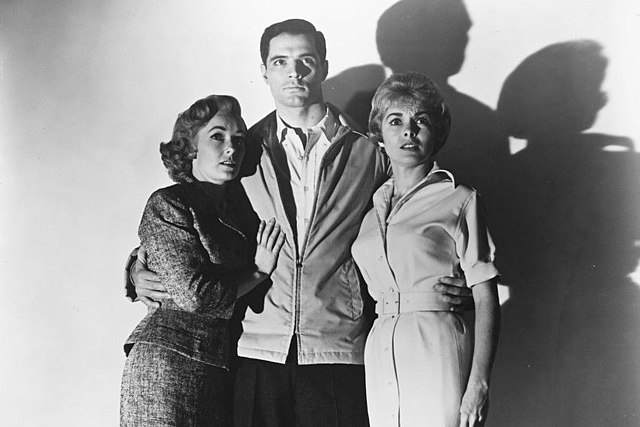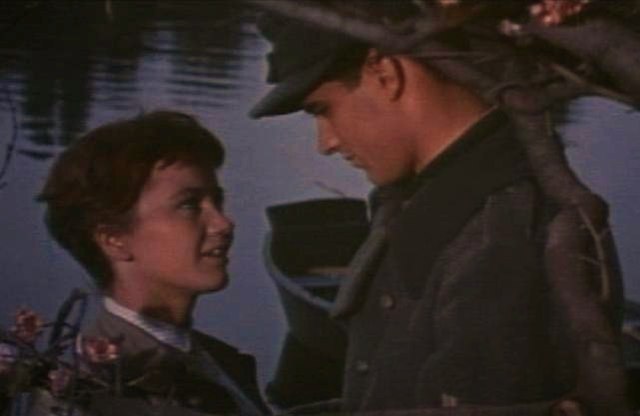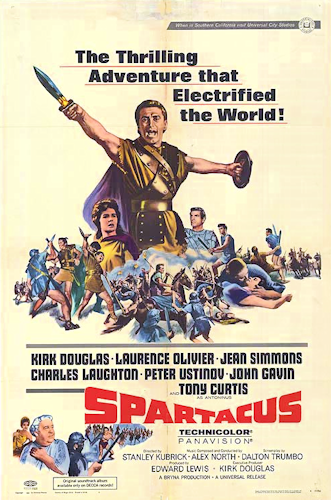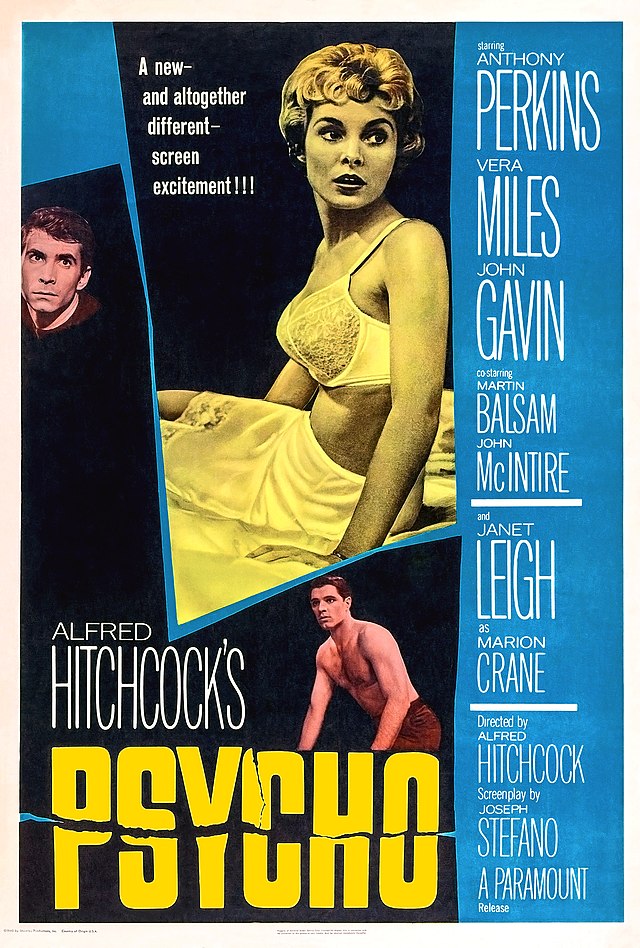John Gavin
back| Full Name | John Anthony Golenor |
| Stage Name | John Gavin |
| Born | April 8, 1931 |
| Birthplace | Los Angeles, California, USA |
| Died | February 9, 2018 |
| Buried | Pacific View Memorial Park, Corona del Mar, California |
| Married to | Cicely Evans (1957–1965, divorced) - Constance Towers (married in 1974 until his death) |
| Children | Two children from his first marriage: Cristina and Maria - Two stepchildren from his marriage to Constance Towers: Michael and Maureen McGrath |
| Notable films | Imitation of Life (1959) - Psycho (1960) - Spartacus (1960)- Back Street (1961) - Thoroughly Modern Millie (1967) |
John Gavin
The Quintessential Leading Man
John Gavin was an American actor and diplomat known for his handsome looks and commanding presence on screen. A former Navy officer, Gavin turned to acting in the 1950s and quickly became one of Universal Pictures' leading men. His breakthrough role came in the 1958 film A Time to Love and a Time to Die, which established him as a rising star.
Despite his success in film, Gavin’s acting career slowed in the late 1960s, though he continued to work in television and on the stage. He became president of the Screen Actors Guild from 1971 to 1973, and later transitioned into a diplomatic career. In 1981, he was appointed U.S. Ambassador to Mexico by President Ronald Reagan, a position he held until 1986.
Related
John Gavin (1931 – 2018)
Biography and Movie Career
John Gavin was born John Anthony Golenor on April 8, 1931, in Los Angeles, California. His father was of Chilean descent, while his mother had Mexican roots. Growing up in a bilingual household, Gavin was fluent in both Spanish and English, which would later be an asset in both his acting career and diplomatic service.
Gavin was educated at prestigious schools in Los Angeles, including the Catholic Loyola High School. After high school, he attended Stanford University, where he studied Latin American economic history, graduating with a degree in economics. His intellectual leanings were always part of his persona, and he never really intended to become an actor.
His path took a detour when he enlisted in the U.S. Navy during the Korean War. He served as an intelligence officer and saw active duty during his military service. This experience profoundly shaped his sense of duty and public service, something he would return to later in life.
Career: From Accidental Actor to Hollywood Star
John Gavin's entry into Hollywood was almost accidental. After leaving the Navy, he was planning to go to law school but was urged by family friends in the entertainment industry to give acting a try. Tall, classically handsome, and possessing a deep, authoritative voice, Gavin seemed well-suited for the silver screen. He signed a contract with Universal Pictures in the mid-1950s, a time when studios were still nurturing star talents from the ground up.
Gavin’s first notable role was in A Time to Love and a Time to Die (1958), directed by Douglas Sirk. The film, based on a novel by Erich Maria Remarque, was a critical success, and Gavin’s performance as a sensitive German soldier caught the attention of critics and producers alike. This early success led to a string of major roles in Universal’s most prominent films, including Sirk’s Imitation of Life (1959), where Gavin played a romantic lead opposite Lana Turner.
But it was Alfred Hitchcock’s Psycho (1960) that secured John Gavin’s legacy in film history. Cast as Sam Loomis, the boyfriend of Janet Leigh's ill-fated Marion Crane, Gavin delivered a solid, if understated, performance in one of cinema's most iconic thrillers. That same year, he portrayed Julius Caesar in Spartacus (1960), directed by Stanley Kubrick and starring Kirk Douglas, which cemented his status as a Hollywood leading man.
Despite his good looks and a talent for serious roles, Gavin's acting career never quite hit the heights that his early successes seemed to promise. Universal had marketed him as a successor to actors like Rock Hudson and Cary Grant, but by the mid-1960s, his film roles became less frequent. He appeared in Back Street (1961) and Thoroughly Modern Millie (1967), but these films did not catapult him to greater stardom. In fact, he was famously cast as James Bond in Diamonds Are Forever (1971), but at the last minute, producers replaced him with Sean Connery, who returned to the role.
Personal Life and Marriages
John Gavin’s personal life was as interesting as his career. He first married actress Cicely Evans in 1957, with whom he had two children, Cristina and Maria. However, their marriage did not last, and they divorced in 1965.
In 1974, Gavin married actress Constance Towers, best known for her roles in films like The Horse Soldiers (1959) and her later television career on General Hospital. This marriage was long-lasting and happy, and Gavin took an active role in raising Towers' two children from her previous marriage, Michael and Maureen McGrath. He and Towers remained married for the rest of his life, often appearing together at events and deeply involved in charitable work.
Diplomatic Career and Other Passions
As his acting career began to wane, John Gavin looked for other avenues to apply his talents and intellect. His fluency in Spanish and his interest in Latin American affairs, coupled with his service background, made him an ideal candidate for a diplomatic post. In 1981, President Ronald Reagan, who had been a friend and admirer of Gavin’s, appointed him U.S. Ambassador to Mexico.
Gavin served as ambassador during a turbulent period in U.S.-Mexico relations, with issues like drug trafficking, illegal immigration, and trade frequently dominating headlines. His appointment was initially met with some skepticism because of his Hollywood background, but Gavin quickly earned respect for his diplomatic abilities. He held the position from 1981 to 1986, a five-year tenure that highlighted his serious commitment to public service.
Outside of his work as an ambassador, Gavin had a lifelong passion for the arts, education, and philanthropy. He remained involved in charitable organizations, serving on boards and contributing to causes that supported education, healthcare, and veterans. He also became president of the Screen Actors Guild from 1971 to 1973, a role he took seriously, as it allowed him to represent the rights of actors in the industry.
Later Years and Death
After retiring from public life, John Gavin mostly stayed out of the spotlight, although he occasionally appeared at Hollywood events alongside his wife, Constance. He continued to enjoy a peaceful life, indulging in his love for history and culture.
In his later years, Gavin faced health challenges. He was diagnosed with leukemia, but it was complications from pneumonia that ultimately caused his death. On February 9, 2018, at the age of 86, John Gavin passed away in his Beverly Hills home, surrounded by his family. His death marked the end of a life filled with both Hollywood glamour and real-world service. He was buried at Pacific View Memorial Park in Corona del Mar, California.
Legacy
John Gavin's legacy is one of quiet dignity. Though he may not have reached the superstardom of some of his peers, his career encompassed iconic films that are still celebrated today. As an actor, his performances in Psycho and Spartacus remain unforgettable. As a diplomat and public servant, he left behind a legacy of dedication and professionalism. His marriage to Constance Towers also became an enduring symbol of Hollywood stability.
In both his public and private life, John Gavin exemplified grace, intelligence, and an unshakable sense of duty, leaving behind a legacy that extends beyond the screen.
Video on the Life of Johan Gavin
Key Characteristics of John Gavin’s Acting Style
Reserved and Stoic Presence:
Gavin often portrayed characters who were emotionally controlled and stoic, sometimes to the point of being almost aloof. This was particularly evident in his role as Sam Loomis in Psycho (1960), where he played a supportive yet emotionally distant figure. His delivery of lines was calm and measured, and he tended to express emotion more through his posture and facial expressions than through exaggerated gestures or vocal inflection. This restraint often gave his characters an air of reliability and dependability, which made him ideal for playing romantic leads or strong supporting roles.
Commanding Physicality:
With his tall (6’4”), athletic frame and strikingly good looks, Gavin had a natural presence that immediately commanded attention on screen. He used his physicality not to dominate scenes but to imbue his characters with a quiet confidence. This was evident in roles such as Julius Caesar in Spartacus (1960), where his poised, regal bearing suggested leadership and authority. His physical presence, coupled with a deep voice, gave his performances a strong sense of gravitas, even when the script required minimal dialogue or action.
Subtle Emotional Depth:
While Gavin’s characters often appeared emotionally reserved, there was usually an undercurrent of vulnerability or sensitivity just beneath the surface. In A Time to Love and a Time to Die (1958), for example, he portrayed a German soldier who experiences a deep inner conflict between his duty to his country and his desire for a normal life. Although his performance was restrained, he conveyed the internal torment and humanity of his character through small, deliberate movements and expressions—often allowing moments of introspection to reveal the emotional depth behind his characters.
Classical Hollywood Elegance:
Gavin’s acting style fit squarely within the mold of classic Hollywood leading men. He epitomized a certain type of clean-cut, refined masculinity that was popular in the 1950s and early 1960s. Whether playing a romantic lead, a soldier, or a historical figure, he often embodied the idealized version of American manhood—handsome, honorable, and slightly enigmatic. This made him a favorite for roles in sweeping melodramas, such as Back Street (1961), where his character’s quiet suffering under the weight of societal pressures resonated with the audience.
Romantic Lead with Subdued Passion:
Gavin’s romantic roles often involved characters who expressed love and passion in a restrained, almost gentlemanly manner. In films like Imitation of Life (1959), he played the charming and supportive love interest without resorting to grand romantic gestures or emotional outbursts. His on-screen chemistry with leading ladies, including stars like Lana Turner and Susan Hayward, was based on his ability to exude reliability and warmth rather than overt displays of desire. This lent a kind of refined, old-fashioned charm to his performances in romantic dramas.
Versatility Within a Limited Range:
Though Gavin often played roles that fell into a certain "type"—the noble soldier, the romantic lead, or the stoic hero—he demonstrated versatility within these parameters. For instance, in The Madwoman of Chaillot (1968), Gavin delved into a more comedic and satirical role, displaying a lighter, more playful side to his acting. However, even in such roles, he maintained a sense of restraint and elegance, never fully departing from the composure that defined his style.
Controlled Line Delivery:
Gavin’s vocal delivery was marked by its clarity and smoothness. He often delivered his lines in a steady, unhurried manner, emphasizing his characters' intelligence or emotional reserve. His deep, resonant voice added authority to his performances, particularly in roles where he played military or political figures, such as his portrayal of Julius Caesar in Spartacus.
Strengths and Criticism:
While Gavin’s acting style had many strengths, it also came with certain limitations. His reserved, understated performances often worked well in supporting roles or in films that required a more classical approach to acting, but critics sometimes felt that he lacked the emotional range or intensity to carry more dynamic or complex characters. In films like Psycho, his performance was solid but somewhat overshadowed by the more intense and animated performances of his co-stars, particularly Anthony Perkins.
Gavin's subtle style also meant that his performances could sometimes come off as emotionally distant or "wooden," a critique he faced throughout his career. Some audiences and critics felt that his handsome, polished exterior did not always translate into depth or vulnerability, particularly when compared to more expressive actors of the time.
Conclusion:
John Gavin’s acting style was characterized by elegance, restraint, and quiet strength. He excelled at playing noble, stoic characters who embodied a certain classical masculinity. His acting was often subtle, relying on physical presence and understated emotional expression rather than overt displays of passion or drama. While he was sometimes criticized for being too reserved or stiff, his performances in iconic films like Psycho and Spartacus continue to be remembered for their dignified presence and timeless charm.
Awards and Recognition
Golden Globe Award:
- 1959 – Golden Globe Award for Most Promising Newcomer – Male
John Gavin won this award early in his career for his performance in A Time to Love and a Time to Die (1958). His portrayal of Ernst Graeber, a German soldier returning from the Eastern Front, was well-received and showcased his potential as a rising star in Hollywood. The Golden Globe for Most Promising Newcomer was an acknowledgment of his strong start in the film industry.
Screen Actors Guild:
- President of the Screen Actors Guild (1971-1973)
While this isn't a traditional award, John Gavin's election as president of the Screen Actors Guild (SAG) reflects the respect and recognition he garnered among his peers in Hollywood. His tenure came at a time when the industry was undergoing significant changes, and he was a strong advocate for actors' rights and protections.
Diplomatic Service Recognition:
- U.S. Ambassador to Mexico (1981-1986)
Although his appointment as U.S. Ambassador to Mexico was not an award, it was a prestigious role that recognized his capabilities beyond acting. Appointed by President Ronald Reagan, Gavin's diplomatic work was particularly notable due to his fluency in Spanish and his background in Latin American economic history. His tenure was largely considered a success, and he was widely respected for his efforts in maintaining strong U.S.-Mexico relations during a complex period.
Legacy and Honors:
- Legacy in Hollywood:
Despite the lack of major acting awards, John Gavin’s contributions to cinema—particularly his roles in Psycho, Spartacus, and Imitation of Life—have secured his place in Hollywood history. His performances in these films are often cited in retrospectives and discussions of classic cinema.
His work as president of the Screen Actors Guild and as a public servant further bolstered his standing in both Hollywood and diplomatic circles, marking him as a respected figure who successfully transitioned between two very different worlds.
Charitable and Public Service Recognition:
- Recognition for Philanthropy and Public Service:
Gavin was involved in several charitable organizations, including causes related to education, healthcare, and veterans. He frequently served on boards and participated in fundraising events for various causes, though specific formal awards for his philanthropic work are not well-documented.
Honors Posthumously:
- While there is no extensive record of posthumous awards, Gavin's death in 2018 prompted tributes and reflections on his career from fans, peers, and the media. His contributions to film and his diplomatic work have been honored in retrospectives and celebrations of classic cinema.
Personal Quotes from John Gavin
On His Acting Career:
- "I don't complain when I’m overlooked, and I don’t gloat when I’m in the limelight."
This quote reflects Gavin’s level-headed approach to fame and the ups and downs of his acting career. He was known for maintaining a calm and modest attitude throughout his time in Hollywood.
- "I wasn’t thrilled with acting. I didn’t train for it, and it wasn’t my life-long ambition."
Gavin often expressed ambivalence toward his acting career, acknowledging that he entered Hollywood almost by accident and that it wasn’t his original passion. His interest in Latin American history and economics meant that acting was something he saw more as an opportunity than a calling.
- "I had gone from being all but unknown to being a name and face, but not necessarily a personality, in a year’s time."
Gavin spoke about how quickly he rose to fame in the late 1950s, but he recognized that his image was often more prominent than his actual reputation as a versatile actor.
On Being Cast in Iconic Roles:
- "Being in Psycho was a mixed blessing, because as good as the film was and is, the star was Anthony Perkins, not me. And Hitchcock, not the actors, was the main attraction."
Gavin recognized the enormous impact Psycho had on cinema, but he was realistic about the fact that his role as Sam Loomis was somewhat overshadowed by Anthony Perkins' iconic portrayal of Norman Bates and Hitchcock's directorial genius.
- "People were always comparing me to Rock Hudson. But I was never Rock. And I never aspired to be him."
This quote highlights Gavin’s understanding of how he was often typecast or compared to other leading men of his time, particularly Rock Hudson. Despite the comparisons, Gavin acknowledged that he had his own identity in Hollywood.
On His Diplomatic Career:
- "I’m an actor by choice, but I became an ambassador by accident."
After leaving Hollywood, Gavin transitioned into diplomacy and public service, but he never saw it as part of a grand plan. He embraced the opportunities that came his way with humility and a sense of responsibility.
- "Being an ambassador is not a reward for loyalty, it’s a responsibility."
This quote reflects Gavin’s serious approach to his role as U.S. Ambassador to Mexico. He understood that his appointment by President Reagan came with significant duties and was not just an honorary position based on his connections or Hollywood fame.
On Hollywood and Fame:
- "Hollywood is like any industry: some will say anything to get ahead, while others are true to their word."
Gavin's grounded nature allowed him to navigate the complexities of the entertainment industry without losing sight of his values. He was aware of the challenges and ethical dilemmas actors and filmmakers faced in Hollywood.
- "I’ve never considered myself a star. I’ve always been just an actor who worked hard to get better."
This self-assessment reveals Gavin's humility. Even though he starred in iconic films, he never saw himself as a "star" in the traditional sense. Instead, he viewed himself as a craftsman continually trying to improve.
What Others said about John Gavin
Alfred Hitchcock (Director of Psycho):
- "He had the looks of a Hollywood leading man but with the poise and discipline of a seasoned actor."
Hitchcock recognized Gavin's physical appeal but also appreciated the depth and professionalism he brought to the role of Sam Loomis in Psycho (1960).
Constance Towers (Wife and Actress):
- "John was a deeply thoughtful, intelligent man who gave more than he received in life. His legacy was never about fame but about duty and service."
Constance Towers, Gavin’s wife, often praised his humility and sense of responsibility, particularly when he transitioned from acting to public service. She also frequently spoke about the deep bond they shared during their more than 40 years of marriage.
Ronald Reagan (Former U.S. President and fellow actor):
- "John Gavin is a man of extraordinary ability, judgment, and experience who will serve the country with distinction."
Ronald Reagan, who appointed Gavin as U.S. Ambassador to Mexico in 1981, saw in Gavin not just a former actor, but a capable and thoughtful diplomat. Their friendship, which began in Hollywood, was strengthened by their shared conservative values and dedication to public service.
Janet Leigh (Co-star in Psycho):
- "John was a gentleman in every sense of the word. He was always prepared, always courteous, and always a pleasure to work with."
Janet Leigh, Gavin’s co-star in Psycho, remembered him fondly as a consummate professional on set. His gentlemanly behavior and professionalism made him a respected figure in the industry.
Douglas Sirk (Director of Imitation of Life and A Time to Love and a Time to Die):
- "John brought a quiet intensity to his roles. He was never flashy, but his performances were always steady and reliable."
Douglas Sirk, who directed Gavin in two films, appreciated his ability to portray complex emotions with subtlety. Gavin’s performances in A Time to Love and a Time to Die and Imitation of Life were examples of his controlled yet emotionally resonant acting style.
Rock Hudson (Actor and contemporary):
- "John Gavin was a man of great stature, not just in height but in the way he carried himself. He had that presence you can’t teach."
Rock Hudson, who was often compared to Gavin, admired his grace and presence. Both actors were tall, handsome, and often cast in similar types of roles, but Hudson recognized Gavin’s unique persona and poise.
Paul Gregory (Producer and long-time friend):
- "John was always a little too refined for the rough-and-tumble world of Hollywood. He had a certain intellectualism and dignity that set him apart."
Paul Gregory, who worked with Gavin in the early stages of his career, often remarked on Gavin’s intelligence and his slightly detached attitude toward the Hollywood scene. Gregory saw Gavin as someone who brought more depth to his roles than just good looks.
Critics and Film Historians:
- "Gavin was the archetypal leading man of the late 1950s and early 1960s. His classical features and restrained style made him the perfect fit for melodramas and epics of that era."
Many film historians have noted that John Gavin, with his clean-cut looks and understated acting, represented a particular ideal of American masculinity in the golden age of Hollywood. His work in films like Imitation of Life and Spartacus solidified his reputation as a classic leading man.
Mexican Officials (During his tenure as U.S. Ambassador to Mexico):
- "He brought a seriousness and respect to the post, and he was always well-prepared and engaged in matters of diplomacy."
During Gavin’s tenure as U.S. Ambassador to Mexico, Mexican officials praised his diplomatic efforts and cultural sensitivity. His fluency in Spanish and deep understanding of Latin American history and culture made him a well-respected figure in Mexico, despite initial skepticism due to his Hollywood background.
Legacy in the Film Industry:
- "John Gavin may not have been the biggest star of his time, but his contribution to iconic films like Psycho and Imitation of Life will always be remembered. He was the embodiment of the classic leading man."
Many retrospectives on Hollywood cinema of the 1950s and 1960s acknowledge Gavin’s contributions to the era. While he may not have reached the same level of fame as some of his peers, his legacy in film endures through his work in classic films.
Movies with John Gavin
1956
- Behind the High Wall:
A crime drama in which Gavin plays Johnny Hutchins, a convict who becomes entangled in a robbery and murder plot involving a prison warden. This was one of his early roles, where he played a supporting character.
1957
- Four Girls in Town:
A romantic comedy about four women competing for the lead role in a Hollywood movie. Gavin plays a supporting role as one of the romantic interests.
1958
- Quantez:
A Western about five outlaws who, after a botched robbery, seek refuge in a ghost town. Gavin plays one of the outlaws, a conflicted character torn between loyalty and survival.
- A Time to Love and a Time to Die:
Directed by Douglas Sirk, this World War II drama stars Gavin as Ernst Graeber, a German soldier returning home from the Eastern Front. He finds his home destroyed and embarks on a love affair, but the war continues to haunt him. This was one of Gavin’s first major roles and established him as a rising star.
1959
- Imitation of Life:
In this Douglas Sirk melodrama, Gavin plays Steve Archer, a love interest for Lana Turner's character. The film explores racial and social issues, focusing on two women, one white and one Black, and their daughters. It was a huge hit and remains one of Sirk’s most celebrated films.
1960
- Psycho:
Directed by Alfred Hitchcock, Gavin plays Sam Loomis, the boyfriend of Marion Crane (Janet Leigh). Sam becomes entangled in the investigation of Marion's disappearance, leading to the shocking discovery at the Bates Motel. This thriller is a landmark in cinematic history and remains one of Hitchcock’s most iconic films.
- Spartacus:
Directed by Stanley Kubrick, Gavin plays Julius Caesar, a rising Roman general who becomes involved in the political intrigue surrounding Spartacus’ slave rebellion. Although his role is smaller, Gavin brings a strong presence to the film, which also stars Kirk Douglas and Laurence Olivier.
1961
- Back Street:
A romantic drama in which Gavin stars alongside Susan Hayward. The film tells the story of a decades-long love affair between a woman and a married man, highlighting the emotional toll of an unfulfilled romance.
1967
- Thoroughly Modern Millie:
A musical comedy set in the 1920s, Gavin plays Trevor Graydon, a rich businessman who becomes the love interest of Julie Andrews' character, Millie. The film was a lighthearted box office success, and Gavin’s performance added charm to the ensemble cast.
1968
- The Madwoman of Chaillot:
This satirical comedy stars Katharine Hepburn as the eccentric Countess Aurelia. Gavin plays a romantic character in this story about a group of people trying to thwart corrupt businessmen from exploiting a Parisian neighborhood for oil.
1974
- Pedro Páramo:
A Mexican film based on the celebrated novel by Juan Rulfo. Gavin plays the title character, Pedro Páramo, a wealthy and tyrannical landowner in a remote Mexican village. The film follows his son’s journey to discover the truth about his father and his own heritage. This was one of Gavin’s more significant roles in a Spanish-language production.
1976
- Iglesia de los Pobres (Church of the Poor):
A religious drama, this film had limited international distribution. Gavin plays a central role in the film, which focuses on social justice and the struggles of the marginalized in a South American context.
1981
- Sophia Loren: Her Own Story (TV Movie):
A television biopic about the life of the iconic Italian actress Sophia Loren. Gavin plays Cary Grant, one of Loren's Hollywood co-stars and romantic interests in real life.

